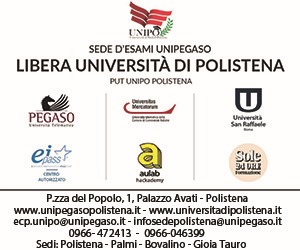“The whole world moums his untimely passing with the disbelief that is only reserved to great figures, hardly accepting that the sickle reaps without distinction”
of MIRELLA MARIA MICHIENZI
Steve Jobs, the man who bit the apple but didn’t blame Eve!
“The whole world moums his untimely passing with the disbelief that is only reserved to great figures, hardly accepting that the sickle reaps without distinction”
Dear Editor,
great is Jobs’ symbolism, both in language and actions. His bitten apple is his super-symbol because it reflects not only his total freedom idea but also the autonomy of thought and individual responsibility for his own actions, without conditioning others’ ideas for possible justifications in case of “failure”.
Even Steve Jobs, called the Einstein-like genius, had to bow down and surrender in the face of death.
The whole world moums his untimely passing with the disbelief that is only reserved to great figures, hardly accepting that the sickle reaps without distinction.
My way to honor him was to read several times the speech he gave to undergraduates at Stanford University in 2005.
Two key points are deducted: the sense of time and the sense of love.
– The first is an invitation to young not to waste time, because this is limited; and to live every day as if it was the last.
– The second is the advice to always follow the voice of heart, to do everything with love, to struggle to achieve dreams, to discover passions without getting tired of looking for them until they were found…to be able to dedicate to work with love. Only in this way, although there has been a refusal or failure, we can start again with new enthusiasm and insist on the “same subject”, because we are still in love with what we have done.
The vision of time is proposed in a realistc way. A proponent of cutting-edge technology like him invites young people to always look to the future, turning back, in a continuity between past, present, future. Pointing out that on this earth we are passing through, he doesn’t say, however, the word death even if it is present because it hovers. The genius with supreme modesty does not delve into the mystery.
This symbolism, including recall of past and anticipation of the future, is the leitmotif of the Thomas Mann Magic Mountain. Of course, it arises a spontaneously parallel with the speech that Mann made in 1939 to the students of Princeton University by presenting, in fact, his novel, the same that would have been the subject of study during the academic year.
Here the search for the Graal and knowledge is framed quite clearly from the question on the mystery of time, of life, of death that doesn’t exist if there is no life. Major unanswered questions that Mann, in the Magic Mountain, answers through Behrens words: “ I know death, I’m its old servant, believe me, do not overstates her…We come from darkness and go into darkness. Between this there are life experiences. The beginning and the end, birth and death, are our experiences…”
Steve Jobs, as I said, put the same questions in a roundabout way, not explicitly, leaving us, once again, in the individual freedom of thought.
He always feared death, realizing the shortness of time, but cleverly he never wanted to deepen to not get lost in abstruse and impossible answers.
- Now that he is in the “world of truth”, now that he has this other experience, maybe he can solve the riddle of beginning and end.
Dear Steve, who knows if you invent something to let us know in advance before our time runs out. I’m holding you to this and thanks again for everything you’ve done.
- Mirella Maria Michienzi
- redazione@approdonews.it



